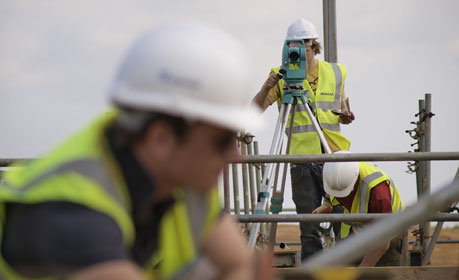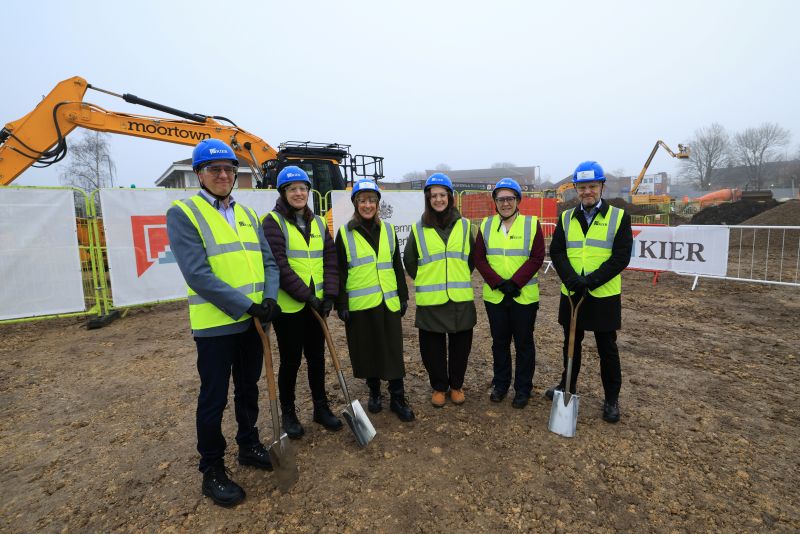The British Chambers
of Commerce’s quarterly
economic survey – the largest private sector survey of business sentiment
and leading indicator of UK GDP growth – found that key indicators of UK
economic health weakened considerably in the first quarter of 2019.
Against a backdrop
of a slowing global economy, escalating Brexit uncertainty, and rises in
business costs as the UK enters a new tax year, the latest results from the
survey of over 7,000 businesses – employing around one million people – reflect
a deterioration in many gauges of the UK’s economic strength.
Among manufacturers,
the percentage of firms reporting an increase in domestic and export sales and
orders dropped back to their 2016 levels.

The balance of firms
reporting improved cashflow – a key indicator of business health – and which
has been declining over recent years, has now gone into negative territory for
the first time since 2012.
The lack of clarity
over the UK’s future relationship with the EU is continuing to weigh on
investment intentions in both the manufacturing and services sectors. The
balance of firms who looked to invest in either plant and machinery or training
dropped in both sectors to their lowest level in eight years. Business
confidence in profitability and turnover also deteriorated sharply in the
quarter.
The leading business
group has been calling for an end to the relentless uncertainty, which as the
latest results from the long-standing business survey highlight, has damaged
the confidence and investment plans of business communities. Westminster must ensure
that a messy and disorderly exit is avoided and provide firms with certainty on
future conditions to prevent further declines. To kickstart strong growth in
the economy, government must return its attention and energy to removing
barriers to growth in the domestic environment.
Ill-timed increases
in business costs – including compliance with Making Tax Digital, higher
business rates for some firms, increased employer pension contribution
requirements, and more – are also raising costs pressures for companies across
the UK at a time when government should be looking to reduce rather than
increase burdens.
Suren Thiru, Head of
Economics at the British Chambers of Commerce (BCC), said: “Our latest survey
suggests that UK growth nearly ground to a halt in the first quarter of 2019,
with increasing anxiety over Brexit and weakening global economic conditions driving
a significant deterioration in almost all the key indicators in the quarter.
“The services sector
suffered the more substantial loss of momentum in the first quarter with both
domestic and international activity slowing sharply in the quarter. The
manufacturing sector continues to struggle amid tougher global and domestic
trading conditions and rising cost pressures. The marked decline in the export
indicators in both sectors suggests that net trade is likely to have been a
drag on UK GDP growth in Q1. The deterioration in cash flow is concerning as it
can leave firms more vulnerable to external shocks, including disruptions to
supply chains.
“The forward-looking
indicators are disappointingly downbeat with weakening orders, confidence and
investment intentions pointing to precious little growth over the coming
quarters, unless substantial action is taken.”
Reacting to the Q1
results, Dr Adam Marshall, Director General of the British Chambers of
Commerce, said: “Our findings should serve as a clear warning that the ongoing
impasse at Westminster is contributing to a sharp slowdown in the real economy
across the UK. Business is hitting the brakes – hard.

“These are some of
the weakest figures we’ve seen in nearly a decade, and that’s no coincidence.
The prospect of a messy and disorderly exit from the EU is weighing heavily on
the UK economy, and must still be avoided. The unwanted prospect of a disorderly
‘no deal’ exit, and the serious damage and dislocation it would bring, is still
just days away unless Parliament acts to avoid it.
“At the same time
that firms are having to enact costly contingency plans, the cost of doing
business here in the UK continues to rise. This week seesa new tax year with a
number of changes adding to the upfront cost of doing business in the UK,
including the introduction of Making Tax Digital and changes to auto-enrolment,
leaving many firms facing more bureaucracy and new expenses. It beggars belief
that ministers are piling on more and more costly obligations at a time that
businesses are already having to cope with Brexit and uncertainty.
“For too long Brexit
tunnel-vision has distracted government from fixing the fundamentals to support
growth here in the UK. We need to see an increased focus on creating the
conditions for business success here at home – including concerted efforts to
plug growing labour shortages, delivering an immigration policy that works for
business and speeding up physical and digital infrastructure projects.”
Key findings in the
Q1 2019 survey for the manufacturing sector:
- The balance of firms
reporting increased domestic sales fell six points to +15, while those
reporting improved domestic orders also fell from +16 to +9 – both are at
their weakest level since Q4 2016
- The balance of firms
reporting improved export sales fell from +20 to +14, and the balance of
firms reporting improved export orders dropped from +18 to +10 – both
their weakest since 2016
- The balance of firms
reporting improved cashflow dropped into negative territory for the first
time since Q3 2012, standing at -1 (down from +10)
- The percentage of firms
attempting to recruit fell from 67% to 62%, the weakest since Q1 2012. Of
those, 79% reported recruitment difficulties, close to its record high
- The balance of firms
increasing investment in plant/machinery fell in the quarter from +18 to
+6, the weakest since Q4 2011, and investment in training from +19 and
+14, weakest since Q3 2012
- The balance of firms
confident that turnover and profitability will increase in the next 12
months fell, from +41 to +26 for turnover and +27 to +13 for profitability
– both are at their weakest since Q4 2011





















